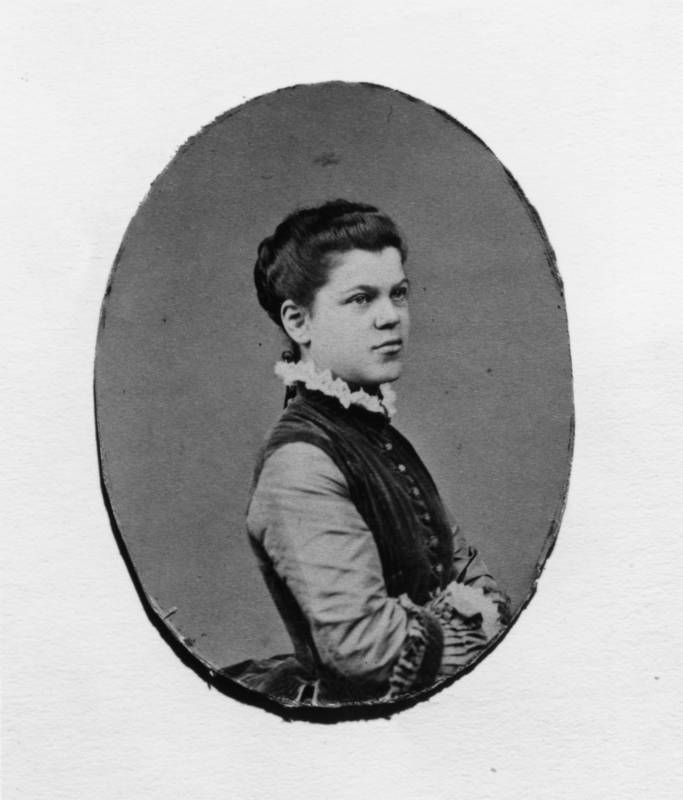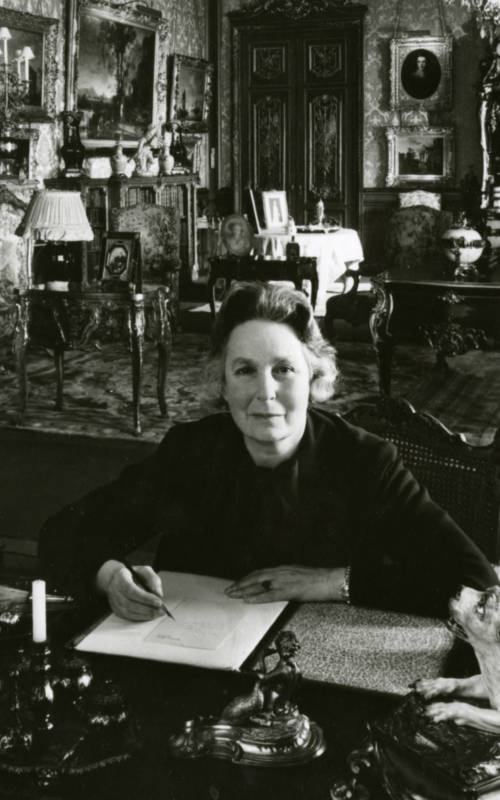
Votes for Waddesdon Women?
Our Head Archivist takes a look back at the key women of Waddesdon and their political opportunities 100 years since some women were given the right to vote.
A comment over coffee the other day made me wonder – what did the Rothschilds think about women’s suffrage and the Votes for Women campaign in the early twentieth century? From a Waddesdon perspective the key women at the time were Miss Alice de Rothschild, who had inherited Waddesdon Manor and the Waddesdon Estate from her brother in 1898, and Dorothy Pinto, who married into the Rothschild family in 1913 and whose husband, James, inherited Waddesdon from Miss Alice in 1922.

Although we have not found anything in the archives that gives us an understanding of their opinions on the Women’s suffrage movement or the prospect of voting in a General Election at the end of 1918 – there are letters that mention the end of the First World War, the Paris Peace Conference of 1919, and events much nearer to home, but wider research may help shine a little light on these matters.
Studying the London Electoral registers – available online via Ancestry while the Buckinghamshire ones are not – for Alice’s London address at 142 Piccadilly and James and Dorothy at 34 Park Street helped us to understand when these two Rothschild women got the vote.
The first record of Alice de Rothschild having the vote is in the 1889 electoral register when she is listed among those eligible to vote in County elections but without a parliamentary vote. As an unmarried women, who owned her own property, Alice would have become eligible to vote in the county council election with the passing of the Local Government Act in 1888. She remains listed as a County Elector until the 1919 electoral register which records her as being eligible to vote in Parliamentary elections. Alice was 71 in 1918 when the Representation of the People Act gave the vote to women over the age of 30 or women who were householders over the age of 21. I wonder whether she voted in the General Election of December 1918 and if so what she thought about getting and exercising her right to vote?

Dorothy de Rothschild (née Pinto) does not appear in an electoral register until 1919, she was only 23 when the 1918 Act was passed and she became eligible to vote in both County and Parliamentary elections due to her husband’s property ownership. It was not until she turned 30 in 1925 that she became eligible to vote in her own right and the electoral registers records this. Her husband James was elected to Parliament in 1924 – as a historian and archivist, I’d be interested to know whether Dorothy voted for him.
By Catherine Taylor, Head Archivist




